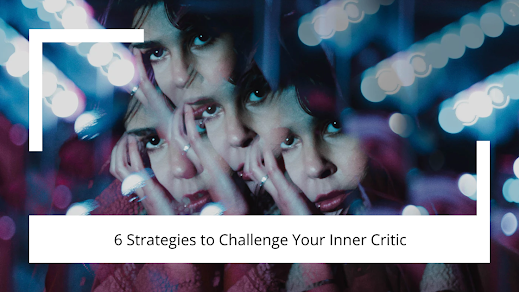None of us are immune to making mistakes. Yet, those who have the skillset and confidence to learn from their mistakes are the ones who seem to do better in life.
By gaining knowledge and experience from our slip-ups, we boost people’s trust in our abilities. Not only that, but we become more capable of navigating life’s ups and downs with minimal stress and anxiety.
In this guide, I’ll discuss six tips for working through your mistakes. I’ll also talk about the psychology behind making mistakes, and how your blunders can actually help you become the best version of yourself.
So, let’s get started.
Own Your Mistakes
The first step in working through a mistake and learning from it is to admit to it. It’s not easy owning up to our oversights, but it’s part of the process of growth and self-discovery.
Also, try not to make excuses or justify your actions. I have to admit that it’s a lot easier to hide behind some lame reason or just blame someone else for what happened.
Let’s face it; we’re all afraid of being criticized and judged. However, when you do that, you only feel good for a short while. But then, soon after, the guilt starts to eat away at you.
So, while difficult to do, holding yourself accountable will be better for you in the long run. First of all, it’ll give you peace of mind. Plus, you’ll gain the respect of your peers as well as yourself.
Shift Your Perspective
Why did Thomas Edison have no problem failing all those times throughout his career? Because he didn’t see his mistakes and failures as something bad to be ashamed of.
Instead, he took them as an opportunity to learn. If he’d been afraid of what people might say about his repeated mistakes when he was inventing the light bulb, he wouldn’t have made history and become one of the most famous inventors of all time.
The same goes for hundreds of successful people. Yet, we usually don’t focus on their journey. Instead, we fast forward to the part where they became famous, forgetting that they spent days and weeks slipping up and trying to fix their errors.
Explore Alternative Courses of Action
Once you’ve trained your mind to see the good that can come from making mistakes, you’ll be better equipped to understand what went wrong.
You’ll also know why it happened and what you can do in the future to prevent it from happening again.
Yet, probably one of the most significant advantages of making mistakes is when you’re able to dig through the rubble and come up with alternative courses of action. For example, list the facts and devise other ways to handle the same situation or something similar.
This is a great way to take advantage of what happened and use it as a stepping stone to the next big thing in your life. As a result, you’ll find it easier to work through your mistakes and manage things more effectively.
Stop Dwelling on the Past
It’s only natural to find yourself fixated on that time you spilled coffee all over your presentation. Or when you stumbled on your way up the stairs and nearly ran into your boss.
Yet, dwelling on the past and overthinking are two of the biggest barriers to working through your mistakes.
Not only that, but they have a negative effect on your self-esteem. As a result, you become more anxious and apprehensive and have trouble moving on.
When you feel like your negative self-talk is taking over, you have to make a conscious effort to stop it before it gains momentum. Show yourself the same kindness and empathy you’d show to a friend.
The best way to do that is to make peace with your mistakes. Tell yourself that life moves on.
You can’t change what happened. So, the best way to get over something like that is to use it to avoid making the same mistake in the future.
Create a Plan of Action
The next logical step is to develop a plan of action. This is where you create a vivid mental image of what you should and shouldn’t do differently to get better results.
To start, gather as much information as you can and analyze it. Then, finally, put your plan into motion.
One of the best ways to ensure your plan is successful is to rely on new resources or skills. So, why not join a class or pick up a hobby? It’ll get you involved in new experiences while exposing yourself to new skill sets that you can use for self-improvement.
Make New Mistakes
No matter how old you are or what position you hold in your workplace, you will make mistakes. They’re a natural part of growing as an individual.
The only thing you can do is to make the most of your mistake and use it as a learning tool. This way, you’ll minimize their impact on your mental and emotional health, and you’ll be able to pick up the pieces much more efficiently.
So, the next time you find yourself slipping up, try taking a solution-oriented approach rather than dwell on the actual mistake. This positive way of dealing with things will allow you to think a few steps ahead to focus more on the solution rather than the problem.












